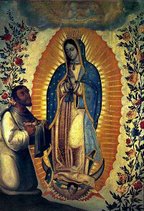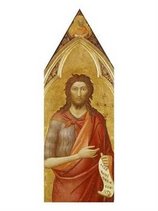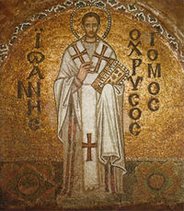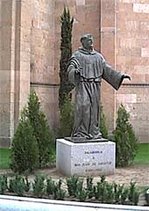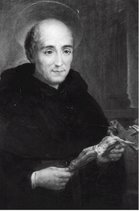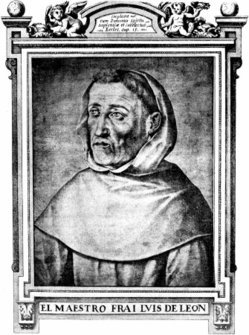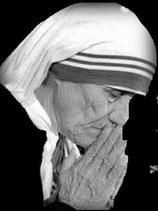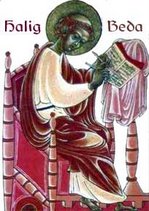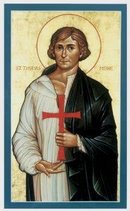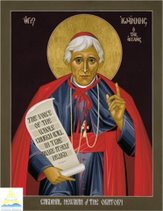Thursday, January 31, 2008
Monday, January 28, 2008
A hilarious new book- Homo Politicus- The Strange and Scary Tribes that Run Our Government

Dana Milbank a writer for the Washington Post has written a book from the point of view of a cultural anthropologist in order to understand the rituals and culture of Potomac Man.
Here are some examples:
Human sacrifice: the ritual immolation of Scooter Libby, Al Gonzalez, Colin Powell et al.
The art of war: Hillary's campaign seen as a revenge killing.
The yearly cleansing ritual known as the Correspondent's Dinner where the president has to undergo humiliation at the hands of comedians (see Steven Colbert 2006 on You Tube).
The real players in Washington are not the president and his cabinet but political strategist known as the shamans- Rove, Carville etc.
The warriors such as the "Hammer" Delay, the Amazon Pelosi etc.
The real Big Men of course are the lobbyists. And every Senator or Representative worth his salt aspires to be a lobbyist. Because the Potomac - meaning 'where the goods are brought in' in the native Indian language is their kingdom. A case in point is Abramoff who could deliver on his gifts such a golfing trip to Scotland. He is sorely missed in Potomac-land.
Obviously this book is a satire but a very droll one. He worked in London for a little while so maybe that explains some of it. Even in this interview on CSPAN he manages to come across in a serious manner. You should watch it, it is hilarious! (not your typical CSPAN):
Interview on CSPAN
Posted by
Antonio449
at
5:13 PM
0
comments
![]()
Tuesday, January 22, 2008
Abraham's Way (a story in progress)

A traveler boarded a ship at dawn carrying only a book in his hands. Wearing no cloak for his back or food for his way but “the guide”. From that he would eat and be well. The little scholar, for he was no more than a boy, curled up in a corner and continued to read. He squinted in the light of the fading lamps as the craft set off to sea as the sailors manned their posts with an impression of perplexity smacked on their faces from the boy’s manner. But the dinars for the fare had been paid and the hour was late.
The captain adjusted the astrolabe, searching the heavens for a barring. The sky a haunting dome encrusted with jewels. Then with a proceeding heave- ho the waters welcomed the ship into their grasp. And as the haul was pulled off under the moon the young man thought of the abyss below filled with darting things that came in nightmares. But he remembered to not be afraid since the first mark of a pious man was that he need only fear the Lord. As he was thinking this the lamps burned out, a splash of salt issuing from the depths. Maybe from the spout of some hidden terror with rows of clenched teeth. But no. He must remain calm since the wise and pious man found truth in contemplations that dispels all darkness, including the murk below. As when the Lord saith: Let there be Light and so it was.
The ship went along its way, following winds beyond the sun. There in the cargo rest came easy. The quiet, lapping waters recalled his mother’s womb.
Sometime later the plea of gulls caught his upper-most ear , telling him that they had arrived at port. The birds no doubt yelling to each other about a nearby fish market where the plunder was thick. He had often wondered just why is was that scale-less eels had been declared an abomination by the Almighty. But no matter. He already had his bread. And with that he began to read again.
“Boy.”
Huh? He lifted his head from the papyrus still speechless from sounding out the vowels.
“Do you hear me boy?” a sailor bellowed in his face, his breath thick with a pungent aroma. “Do you even speak Arabic?”
“Yes.”
“Come on then. We must go ashore for supplies. There is a leak in the bow and the sails must be mended.”
“All right,” he replied softly tucking the parchment into his shirt.
“What is that you’re reading? You a scholar?”
“Sort of.”
“You should leave us such idle pursuits. Work and the sea will make a man out of you.”
He followed the sailor past the port and into the market he had smelled previously with his mind.
“Here,” the sailor gruffly indicated some fresh planks for the haul as he haggled endlessly with the merchant. “O.K. rob us then,” Yusuf blurted out in exasperation and motioned with his head for the boy to pick up the wares. They went further past booths selling gems, foodstuffs, and spices. Some of the more desperate vendors yelled out in shrill voices barely distinguishable from the odd beggar. As they went along the boy struggled to keep the planks centered over his shoulder. Now the linen merchant was no more agreeable than the last so the sailor ended the haggle section with an oath, handing a length of cloth to the boy.
The sailor helped the boy out with the load as they made their way back to the ship with the wares, carrying a plank in his stead, “So, where you from boy?”
“Mesir near Fostat.”
“Hmmm, but your accent is peculiar. It’s as if your vowels were mixed with clouds.”
“All I know is my family came from faraway. Near the edges of the Earth.”
“Hmmm. And yet I’ve noticed you keep reading that book written in strange letters.”
“They are the letters of my ancestors.”
“How strange,” the sailor took the linens and planks on board the craft.
Soon the captain emerged, a husky fellow with a beard, “So what’s your name, boy?”
“Abraham.”
“Like Father Abraham.”
The boy nodded his head.
“My name is Musa and this is my first mate Yusuf who I assume you’ve met.”
He indicated the sailor Yusuf who nodded his head as he exited the hold to accompany his captain, whispering something in his ear..
The captain adjusted his cloak, “We will be ready to depart tomorrow after repairs have been made.”
Abraham re-boarded the vessel and found his place in the cargo hold to continued reading aloud in a soft voice:.
“The pious man, the hasid, is careful to keep himself free from error. Therefore he must have purity of heart to avoid false opinions. For only that which is holy is pure. Now you shall meditate on these words day and night:’be thou holy as Your Lord is Holy.’ For this is the path of the pious and the pure.”
Yusuf entered the hold and caught these last words before the darkness ate them.
“Why, that’s Arabic I heard you reading. Just who were your ancestors Father Abraham?.”
“He is a Hebrew.,” Captain Musa interjected from the galley.
“Really?”
“But it is of no importance.”
Yusuf stood silent in the cabin for a moment watching Abraham as the boy continued deep in study, all but oblivious to his surroundings.
Confused the sailor turned his attention to his captain, “Where is he headed?”
“I told you. It is without importance. Now, fix the jib, I fear we’ll be meeting squalls on our journey.”.
The first mate became impertinent, “Now just where are we taking him?”
“Yusuf, oftentimes the end of speech is better than its beginning. Tend to that jib.”
Whatever the route they took, it was a treacherous one. The winds came like the captain said. And as the port drifted out of sight the stars were gone, buried beneath sheets of dark water. Abraham shuddered out of his trance as the storm approached overhead. The letters in his book began to bleed, sinking his heart into confusion. For if the Lord had created the cosmos with letters surely now He was unmaking it. And at the core of the storm was an unseeing eye that imposed an alphabet of destruction.
--------------------------------------------------------------------------------------
The ink blots scattered as the letters slowly reassembled. And then Abraham noticed that the sky had once again been separated from the waters.
With no recognizable coastline it was clear they had left Africa behind. But as for where they had ended up the fates were silent. Yet the sky was of a different color than in Sudan. A violent ocher. And a peculiar scent wafted about the moorings as the passenger and crew came to their senses.
Yusuf groaned from his position midway between the galley and the head where he had become lodged during the storm, “Well captain, this is perfect. What about the normal route? That wasn’t good enough for the Jew?”
“Silence, you. Do not mettle in what you don’t know,” Musa grumbled back, his foot stuck in the jib.
Abraham alone had been able to escape such humiliation, sitting cross-legged in the cargo hold.
“Hey boy, “Yusuf yelled in the boy’s direction, “Why not read a bit more from that book of yours for a little encouragement.”
“Verily the just and wise man is prepared for all situations because he puts his trust in the Lord.”
“Thanks, yeah, I needed that” Yusuf yelped out as his knee banged against the makeshift latrine.
“For the fear of the Lord is the beginning of wisdom.”
Musa wriggled helplessly from his place up in the rigging,
“Compared to this holy fear all other trials are nothing.”
With that Musa landed on deck with a loud thud.
“Oh, I am such a kafir,” the captain moaned.
“An infidel?” Abraham remarked.
“Yes, since I have no trust in Him,” the captain sadly admitted as he righted himself and took control of the wheel. “Otherwise this would never have happened.”
“But you will still take me?”
“Yes, my son, to the very end, inshallah.”
Yusuf looked on puzzled, wiping unmentionable gunk off his leg.
Still in open waters, the ship went along with the breeze that brought the same odor as before. An odor of some unknown spices. It was as if the sky were cracked and these smelly particles were pieces of paint that came raining down upon them. Also, the sea had changed to a milky green with bits of ocher mixed in.
Captain Musa muttered something as he checked his bearings and barked orders to Yusuf who complied with a look of suspicion. The adjustments made, the craft veered eastwards with the setting sun at its stern. The ocher tones wax violet, then black as the sea swallowed the last rays of gold. The night passed listlessly, Abraham reading by lamplight that sputtered on and off like the stars above.
Meanwhile, Musa and his first mate stood on deck sharing a cup of chai.
At one point Yusuf put down his cup, “Tell me then about this Jew and his damnable journey.”
“Yes,” Musa replied, “in due time.”
“Well?” Yusuf pushed him after a few moments, having no care for such “time”.
“A favor and a friend,” the captain intoned with a cryptic smile leaving Yusuf on deck muttering to himself.
Posted by
Antonio449
at
4:46 PM
1 comments
![]()
Monday, January 14, 2008
Newman to be beatified. Huzzah!

The Pope apparently commented a few months back as to the slow process of Newman's canonization with the words "it's hard to find miracles in Britain". A comment on the modern sentiment epitomized by the philosopher David Hume that miracles are contrary to reason. Despite the odds there appear to be some credible miracles from the Eastern United States, an area no less secularized than Modern Britain. Huzzah for Newman!
Anyway, for a little while now I have become accustomed to reading Newman's Apologia Pro Vita Sua ever year. It settles the mind to see a great intellect couched in a gentler time that bore the seeds of the fight over religion in our day. I enjoy his intellectual odyssey through his reading of Anglican Divines and the erection of his paper church of the Via Media as a bridge between Catholicism and Protestantism. As well as the powerful personalities in the Oxford Movement he helped start.
Posted by
Antonio449
at
8:34 PM
0
comments
![]()
Thursday, January 10, 2008
The fruits of resentment
from the writings of Rev. Christopher Thompson, Vicar at St. John's
I. The argument from resentment
Resentment is an emotion, a posture in response to a supposed outside threat. Like the sand in the shell that irritates and forms a pearl, it has its fruits. Whole belief systems and modes of life are consolidated from this tendency. Resentment is an anti-stance, a sneer at an object greater than ourselves. The goal is to limit its claim on us and bring completion to the realm of the ego, building up its bullwarks so that non can assail it. Ironically that which we rebel against ultimately controls us for all our striving we only prove the significance of that outside force. And whatever we close ourselves off from remains as a suggestion and a shadow whose lines can be traced to their source. Thus it is with the God and the Natural Law.
The militant atheist railings against a God he does not believe in only belies that God’s existence. So too the libertine can only construct a counter-culture, but a culture founded on resistance cannot stand. For it is not free to create but remains forever a prisoner to what it rebels against.
II. The shadow of reason
Just like the plant that reaches to the light so too does the human mind reach out toward the logos. Even in twilight the shadow of the logos still shines. As darkness is the opposite of light so too the irrational and hate-filled can be read as a photographic negative of reason. This is because as nature abhors a vacuum the human mind cannot countenance the absence of the logos. For it will not rest until it finds it.
So too all egregious claims against the Church and its Saints based on blind prejudice only serve to prove their authenticity. As when I was recently in Spain and picked up a book on St. Thomas More who was lambasted as a fanatic whereas Henry VIII was extolled as a modicum of virtue. Whence this furor but from resentment? In terms of moral stature Sir Thomas’ superiority to Henry is unassailable. What motive save the hatred of the Church could stand behind such slander?
Though we may give in to anger at times and suffer outbursts of rage. In the whole of life and as far as you are able live according to reason. A reason that understands in order to believe. A humble partner of faith that searches for understanding. Then you will have the better part.
Posted by
Antonio449
at
10:53 AM
0
comments
![]()
Tuesday, January 08, 2008
Denias and the different peoples of Indonesia

Denias: A Song from the Clouds is a movie about a boy from a village in Papua, the part of New Guinea controlled by Indonesia, who wants to go to school and study. But his mother gets sick and dies not to mention he is low ranking in the tribe compared to the school bully Noel, the chief's son.
The interesting thing about the movie was its capturing of the many racial and cultural groups that make up Indonesia. Not withstanding that some of the areas under Indonesian control such as Papua are contested. Papua is the farthest you can get from the island of Java, the center of the government. Here is a map of the main areas:
The main ethnic group in Java and Sumatra are the Malay, an Austronesian people that are predominantly Muslim. (They also inhabit Malaysia, Singapore and Brunei) Subgroups include Sundanese and Javanese. They are supposed to have orginally emigrated from Taiwan and southern China. Since the original native Taiwanese language shows similarities with Malay whose official form in Indonesia is Bahasa Indonesia, a different form of which is spoken in Malaysia.
Another important group concentrated in Sumatra, Java, and outlying islands are the ethnic Chinese who are predominantly Buddhist, Confucianist, and Protestant or Catholic. They have a major role in the country's business and commerce are are resented by the native Malay population which has given rise to clashes and riots as recent as 1998. Yet many are not purely Chinese but had intermarried with the native population during more stable times. Fortunately, many anti-Chinese laws have been lifted restricting the use of the Chinese language and Chinese names. Therefore many Chinese Indonesians have Indonesian names in addition to a Chinese name that is carried on orally but never written down. Unlike their parents and grandparents many in their 20's and 30's do not know any Chinese but speak Indonesian. This situation should change somewhat with the new laws. Aside from Indonesia other overseas Chinese communities range across Asia from Thailand, Malaysia and the Philippines.
Another interesting group are the inhabitants of the Island of Bali, the Balinese. While ethnically related to the people of nearby Java they have maintained many more cultural traditions from India such as a form of Hunduism. Previously Java had been home to Hundu and Buddhist kingdoms which gave way to Muslim Kingdoms by the 16th century spreading from Sumatra via trade. Many people sought refuge in Bali and preserved these earlier traditions.
Denias and the people of his village in Papua are darker skinned with curly hair, features which made a Spanish captain christen the island as New Guinea for Guinea in Africa. By all accounts they are not African but have more similarity to Australian Aborigines. 
Posted by
Antonio449
at
8:32 PM
0
comments
![]()
Monday, January 07, 2008
St. Bernard on Mary

Are you afraid to approach God the son? He is your brother and your flesh, tempted in all things except sin, that he might show you mercy. Mary gave you this brother. But perhaps you fear the divine majesty within him, because, even though he was made man, yet he remained God. Do you want to have an advocate in the Son's presence, too? Turn to Mary.
Posted by
Antonio449
at
8:23 PM
0
comments
![]()
Friday, January 04, 2008
St. Augustine on Sin and the Body

3.
But if any one says that the flesh is the cause of all vices
and ill conduct, inasmuch as the soul lives wickedly only
because it is moved by the flesh, it is certain he has not
carefully considered the whole nature of man.
..................................................
For the corruption of the body, which weighs down the soul,
is not the cause but the punishment of the first sin ;
and it was not the corruptible flesh that made the soul sinful,
but the sinful soul that made the flesh corruptible. And though
from this corruption of the flesh there arise certain incitements
to vice, and indeed vicious desires, yet we must not attribute to
the flesh all the vices of a wicked life, in case we thereby clear
the devil of all these, for he has no flesh.
(From The City of God Book IV: 3)
Posted by
Antonio449
at
10:30 PM
0
comments
![]()
Wednesday, January 02, 2008
The Unoriginal Bastard Meme- Favorite Books of 2007
Master and Margarita- Mikhail Bulgakov. Finally finished this sucker after several tries. Well worth the time and effort.
RUR- Rossum's Robots- Karol Capek. The original Robot play. Robot is the Czech stem for work. But these first fictional robots are not mechanical automatons but actually synthetic genetic clones. Way more advanced and nuanced portrayal than I thought. Also very funny and tragic at the same time.
Botchan- Natsume Suseki. Very funny especially if you have ever been a teacher. It kind of reminds me of the trials and tribulations of Torgodevil in Korea (especially in the beginning). The novel details all the stupid politics and rivalries between teachers and the administration not to mention the students themselves, who are spoiled and unruly. The narrator is also interesting in that he is from Tokyo and looks down upon the small town as provincial and unsophisticated.
Though you can identify with him, the main character is a bit of a prick himself having been doted on my his maid Kiyo all his life. He is her "Botchan" like the Spanish señorito is a title given to spoiled boys of rich families.
So he goes on giving unpleasant nicknames to everyone at the school: Badger(Tanuki), Redshirt (Akashatsu), Porcupine (Yamaarashi) etc . . .
And even refers to them this way in regular conversation.
Overall, a very good light read.
Rimas y Leyendas- Gustavo Adolfo Becquer. I thought this 19th century work was all mamby-pamby Romanticism. Actually the poetry is quite modern in structure belying its supposedly simple surface.
Canto general- Pablo Neruda. A very ambitious work about the American continent. A modern epic poem. I admire the scope of the work and there are several
Walt Whitman- Complete Poetry and Prose. I finally was able to digest this uniquely American author. It helps when you have more than the 1850's edition of Leaves of Grass but also the last edition from the 1890's. Whitman's prose, especially his description of the Civil War is particularly poetic and moving. He helped attended to the wounded and dying at an army hospital.
Al Kuzari- Yehuda Ha-Levi. A very impressive treatment of the Philosophy of Religion. Especially Judaism.
Jesus of Nazareth. His Holiness Benedict XVI. A very good analysis and rebuttal of an unquestioned faith in historical criticism and its fruits in appreciating the figure of Jesus.
Socrates meets Descartes. Peter Kreeft. A pretty thorough treatment of Descartes' philosophy and his underlying presuppositions.
El libro de su vida. Santa Teresa de Jesús. The autobiography of Saint Theresa of Avila who turns out to be one of the most down to earth people you will ever meet contrary to her image in popular culture.
A Heroe for Our Time. Mikhail Lermontov. In a series of connected vignettes this novel details the exploits of Pechorin an aloof Byronesque character who manipulates everyone and everything for his own disenchanted ego out in remote Caucus region of Russia.
Prose and Poetry. Alexander Pushkin. His poetry is notoriously hard to render in translation but his prose works maintain a great vibrancy.
Posted by
Antonio449
at
3:13 PM
1 comments
![]()

